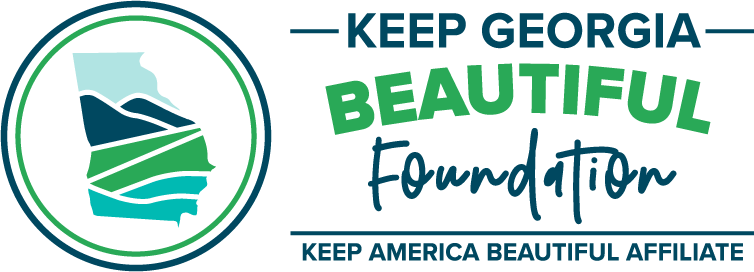Q&A with Cindy Pritchard, Executive Director of the Keep Oconee County Beautiful Commission
We spoke with Cindy about her youth advisory committee, the importance of being creative, and how farmers were the original recyclers.
You officially started as director of the Keep Oconee County Beautiful Commission (KOCBC) in 2016. Tell us a little more about what led you to join the organization.
The board of commissioners chairman approached me about the position because I have a history working in nonprofits—motivating volunteers, partnering with community supporters. I realized what an amazing organization KOCBC was, and felt honored to be chosen. It has such a rich and powerful history here in Oconee.
When I started, it was in its 26th year, and it was founded by a very devoted group of citizens—we actually still have a few of them around. They’ve done everything from take our county from open dumpsters to Pay-As-You-Throw, to starting the first recycling program, to bringing recycling to schools. I’ve built on that history of staying after the programs that our county needs and modifying examples others have set.
Why does sustainability matter to you?
I grew up here in Oconee County. Our quality of life is very good and always has been; that’s extremely important to me. Sustainability has always just been a part of what we’ve done. We had a sign in our kitchen growing up that read, “use it up, wear it out, eat it all”, and I have it in my own kitchen now. A big joke in my family is that I always get paper products for Christmas, so my kids get to see what a paper towel or a paper plate looks like. We buy reusable products, but you know, the original recyclers were farmers. Who repurposes items more than somebody on a farm? That’s where the saying on the sign came from.
I also did a lot of volunteering as a kid. Taking on this role was a natural next step for me, and I enjoy it absolutely every day, even when I’m working on the weekends. It doesn’t feel like work—it’s just a part of what I do, and who I am.
What kinds of improvements have you started to see in Oconee County? Any favorite moments or parts of the role?
At KOCBC we’re charged with ending littering and increasing recycling, and we always say that we’re just continuing to beautify an already beautiful community. One neat program that we started with a grant from Keep America Beautiful is our youth advisory council. Traditionally, it serves high schoolers, but we wanted to include middle school students too. We found that once they get to high school, they have so many choices that they’re like deer in the headlights—by the time they realize their passion, time has already gone by. We wanted more time to mentor them. In our county we have two middle schools, two high schools, and three private schools, so we chose a neutral, central location—our library—to meet, and have built off that since then.
We maintain a garden in conjunction with the city, and have certified three public properties in the county for wildlife habitats. We also installed a pollinator garden. One of the neatest things our youth advisory council did was to write a recycling plan for the city park. The students just turned a sheet of paper over, drew a sketch, and we actually presented it at a city council meeting the next day.
Not only did they accept it full on, but they also agreed to place additional recycling bins in one of our ballparks. It really empowered the students and helped them understand that they can make a difference.
What advice would you share with others looking to improve their rural communities?
I would say don’t be fearful, and know that it’s okay to do things a little bit differently. Partner with everybody—groups, other organizations, businesses—there are plenty of people out there willing to support you if you just ask and tell them what you need. Just be specific. You also have over 65 years of Keep America Beautiful, and over 40 years of the Keep Georgia Beautiful Foundation, to build on. You can modify. For example, the theme #cleanyourblock doesn’t necessarily translate to our community, but for my first Great American Cleanup, because it was the 19th year of the program and we didn’t have a big volunteer base in Oconee yet, we did 19 different activities, from providing a self-starter seed station at the library to going to classrooms and talking to pre-K. It was a way to educate people and raise awareness. This year, for the 21st Great American Cleanup, we decided to do 21 miles of road cleanup in 21 days. With all these activities, you offer people opportunities adaptable to their busy lives—they can choose from morning, night, weekday, weekend, inside, or outside.
I also attend conferences and tours. Any time I can network or get together with other affiliates, even through webinars, I do. It’s always good to see everybody, like a family reunion, and you can always find something to take and use for your own programming. Sometimes I’ll even walk away with an idea from a conversation in a hallway with one or two other members of our network. I find our community super encouraging, and although you have to be really creative, that’s what makes it such a unique passion. Every day you have the opportunity to create what you need, and the chance to reach others with your message.

